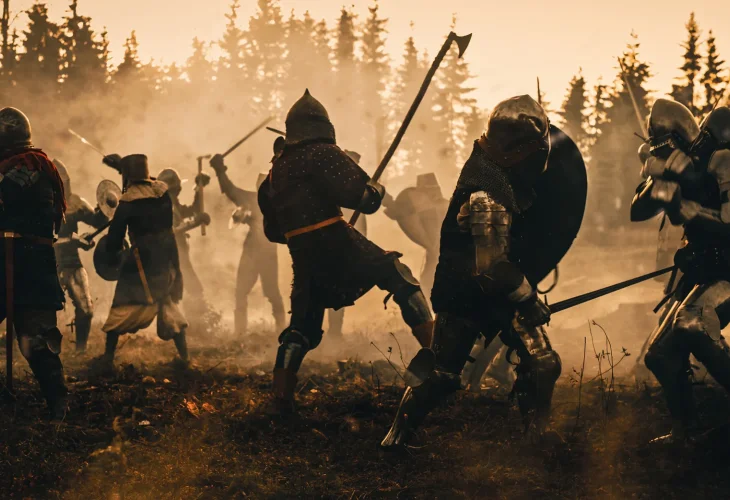The Unforgiven Village: A Legacy of Blood Libel in Metz
Raphael Levy heard about the incident while at home. Though he could have saved himself by moving to another duchy, he knew it would bring disaster upon the Jews of Metz. So, he voluntarily surrendered for questioning, hoping the judges would see he had no connection to the disappearance.
 (Illustration: shutterstock)
(Illustration: shutterstock)Have you ever heard of the village of Gloetini in France? Probably not, and that may be for the best. It's been 324 years since a Jewish person set foot there. About a decade ago, the mayor of Gloetini held a ceremonial apology to the Jews, hoping to break the Jewish boycott, but the Jews of France weren't too eager. No Jewish feet have tread upon that accursed village where villagers falsely accused the Jews of Metz of a horrific blood libel 324 years ago.
The Metz Jewish community is one of the oldest in Europe, and some believe there was a Jewish presence there since Talmudic times. Rabbi Gershom the Light of the Exile was born in Metz. The student of Rabbeinu Tam, Rabbi Eliezer of Metz, who authored 'Sefer Yereim,' lived in Metz. To this day, there remains a 'Rue des Juifs' or 'Street of the Jews' in the heart of old Metz, where remnants of the ancient synagogue can be found.
During the expulsion of Jews from France in 1367, the Jews of Metz were also expelled, but after a few years, they were allowed to return. In 1603, King Henry IV granted the Jews of Metz a charter of rights regulating their residence in the city and their rights.
On the eve of Rosh Hashanah in 1669, a Jewish man named Raphael Levy set out towards Metz to purchase a shofar. His journey there and back was uneventful, except that while passing by the village of Gloetini, some villagers noticed him. After Rosh Hashanah, a child, the son of a Gloetini farmer, went missing. The villagers thought back and recalled seeing a Jew on the road a few days earlier. One of them recognized Levy, and they filed an official complaint with the authorities, accusing Raphael Levy of abducting their son.
Raphael Levy, at home, heard about the incident. He could have fled to another duchy to save himself but knew it would spell disaster for the Jews of Metz. So, he voluntarily appeared for questioning, hoping the judges would realize there was no connection between him and the disappearance. Despite his surrender, the child's body was found near Gloetini. The Christian prosecution claimed that Levy had murdered him to bring his body to Metz for ritual use during the Sukkot festival. What sort of rituals the Jews would have on Sukkot? Even the accusers didn't know.
The dead non-Jewish child was ravaged by wolves; this was evident to everyone who saw the body except the 'esteemed' judges of Metz. They 'concluded' that Raphael Levy had killed the child and sentenced him to death by burning at the stake. The harsh sentence was carried out on the 25th of Tevet, a day remembered in the Metz community as a fast day for many years.
The 'objective' parliament of Metz sought to expel all Jews from Metz and execute the community leaders. Yet, Louis XIV intervened—not because he was righteous, but because he saw significant tax income from the Jews. He transferred the case files to the Supreme Court, which declared Levy innocent and his execution a grave mistake. The Jews were permitted to remain in Metz under the traditional rights charter.
The rabbis of Metz and the surrounding area placed a ban on the village of Gloetini. If you ever pass through that region, it's advisable not to enter; let it remain condemned for eternity.

